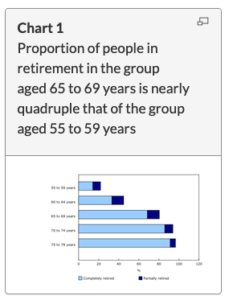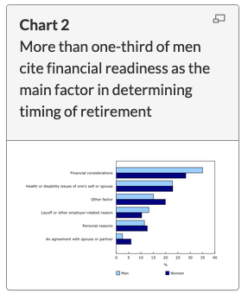
A majority of nearly retired Canadian households — 55 per cent — will have to make lifestyle changes to avoid running out of money in their old age, says a Deloitte Canada report released on Wednesday.
Worse, that percentage jumps to almost three quarters (73%) if you factor in unexpected costs like health care, long-term care costs and occasional one-off expenses. You can find the full release here from Canada Newswire.
Some 4,000 retired and near-retired Canadian households were surveyed, all between ages 55 and 64.
The resulting report is titled Running out of time: An urgent call to fortify Canada’s private retirement pillars. It includes recommendations that can help 38 per cent of near-retirees achieve better financial security in retirement, and generate billions for the financial services industry.
Other findings include:
- Only 14% of 3 million soon-to-retire households can retire with confidence and be able to absorb unexpected costs without much stress. This fortunate group tends to have at least $900,000 in financial assets and likely have a paid-for home.
- 31% of near-retirees will require support in the form of the government’s public pension system: nearly a million households are expected to rely mainly on the Canada Pension Plan in retirement.
- Only 24% of private-sector workers participate in employer-sponsored pension plans
- 40% of retirees have not purchased health insurance, of which 44% cite expensive premiums as the primary reason for not doing so
- 73% of near-retiree households will be at risk of financial hardships
in later stages of life if they require long-term care - 58% of near-retiree and retiree households do not have a formal or detailed retirement plan in place
- 44% of working Canadians were dipping into their retirement savings to pay for non-retirement-related expenses
“By employing a host of radical and innovative solutions, Canada can help to protect those vulnerable both near and in-retirement, and set a global standard for how it tackles retirement on the world stage,” says Hwan Kim, Partner, Financial Services Innovation and Open Banking at Deloitte Canada in the press release, “Given roughly 40 per cent of retirement wealth inequality is due to a lack of financial knowledge, the financial services ecosystem must collaborate with the health care system and public sector to equip Canadians with accessible retirement advice, holistic near-retirement offerings, updated pension planning, quality health care, and new resources to retire confidently.”
The report concedes the saving for Retirement has always been “a daunting challenge for working Canadians,” things have gotten worse the last few years. The shift from employer-provided guaranteed Defined Benefit pensions to group RRSPs and Defined Contribution pensions that fluctuate with financial markets is a major hurdle. The report also cites the rising costs of retirement, a lack of high-quality, near-retirement planning resources, and unexpected expenses during late-stage retirement.
According to the report, 55 per cent of near-retiree households will need to make lifestyle changes to avoid outliving their financial savings – a number that is expected to jump to 73% when factoring in unexpected expenses such as healthcare, long-term care costs, and one-off expenditures.
A Bank of Montreal survey released early in 2023 found Canadians believe they need $1.7 million to retire. My blog on this in February asked whether this was doable or not.
Financial services silos must collaborate
The Deloitte report says the Canadian financial services “ecosystem must collaborate across banking, wealth management, insurance, and the public sector.” This ecosystem needs to focus on three main categories of commercially viable solutions: improve the quality and accessibility of near-retirement advice and products, help retirees manage rising retirement costs, and help Canadians build healthy saving habits early on. Continue Reading…







